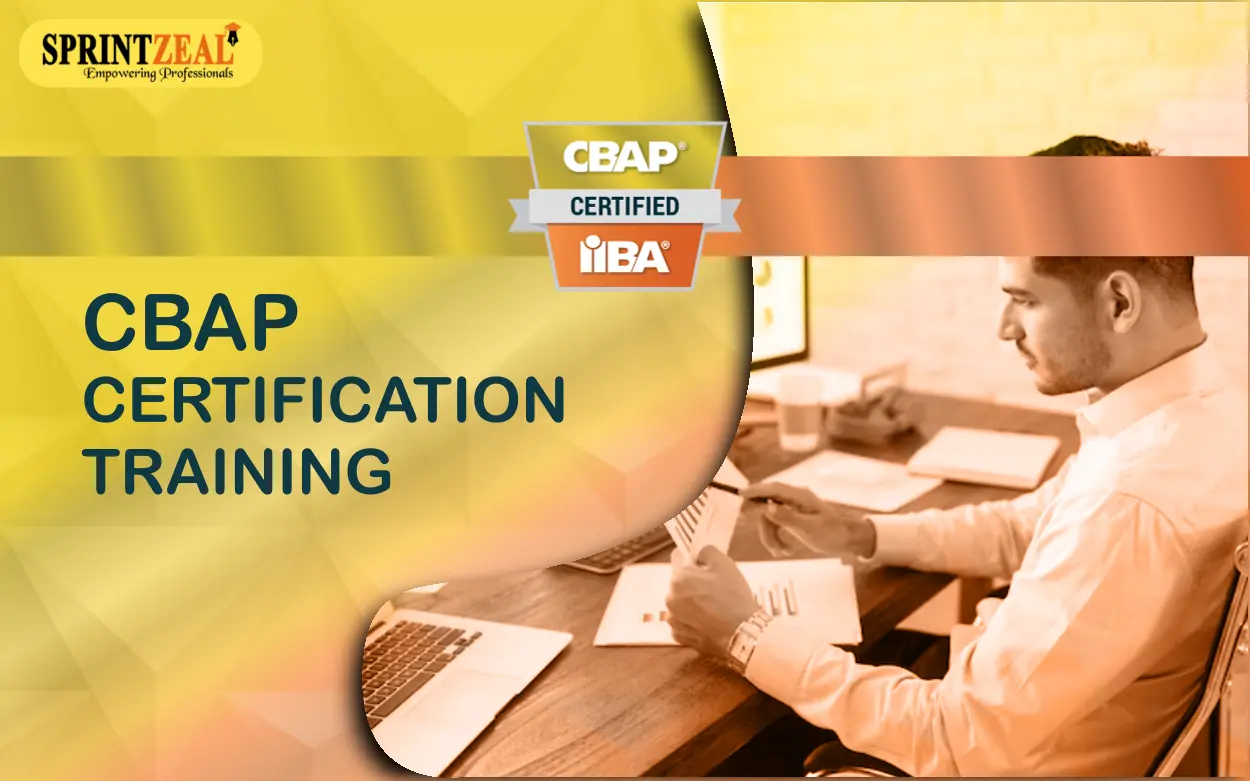CBAP Exam Experience and Study Tips
The Certified Business Analysis Professional (CBAP) certification, offered by the International Institute of Business Analysis (IIBA), is one of the most sought-after credentials for experienced business analysts. Achieving this certification not only validates your expertise in business analysis but also enhances your credibility in the industry. However, the path to earning the CBAP credential is challenging and requires a structured approach. This article outlines the CBAP exam experience and provides practical study tips to help you succeed.
Understanding the CBAP Certification
The CBAP certification in Denver CO is designed for professionals with extensive business analysis experience. It validates your ability to perform complex tasks, guide teams, and drive business solutions effectively. To qualify for the CBAP exam, candidates must meet the following eligibility criteria:
- Work Experience: A minimum of 7,500 hours (5 years) of business analysis experience within the last 10 years.
- Knowledge Areas: At least 900 hours of work experience in four out of the six knowledge areas defined in the Business Analysis Body of Knowledge (BABOK® Guide).
- Professional Development: A minimum of 35 hours of professional development in the past four years.
- References: Two references from a career manager, client, or CBAP-certified professional.
The exam itself consists of 120 multiple-choice questions to be completed in 3.5 hours. The questions are case-study-based, requiring in-depth understanding and application of concepts outlined in the BABOK Guide.
CBAP Exam Experience
Before the Exam
- Application Process: The CBAP application process is straightforward but requires attention to detail. Gather all necessary documents, including your experience records, professional development certificates, and references. Ensure your application aligns with IIBA’s requirements to avoid delays.
- Preparation Timeline: It’s crucial to create a realistic study plan. For most candidates, 3–6 months of preparation is sufficient, depending on your familiarity with the BABOK Guide and your daily schedule.
- Booking the Exam: Once your application is approved, schedule your exam through the IIBA portal. You can choose to take the exam online or at a test center. Ensure your environment meets the technical and logistical requirements if you opt for an online exam.
During the Exam
- Exam Format: The CBAP exam is competency-based, testing your ability to analyze scenarios, make decisions, and solve problems. Most questions are derived from case studies, requiring thorough comprehension and critical thinking.
- Time Management: With 120 questions and 3.5 hours, time management is essential. Allocate about 1.5 minutes per question. Flag difficult questions and revisit them after addressing easier ones.
- Focus Areas: Pay special attention to questions that test your understanding of the six knowledge areas in the BABOK Guide:
- Business Analysis Planning and Monitoring
- Elicitation and Collaboration
- Requirements Life Cycle Management
- Strategy Analysis
- Requirements Analysis and Design Definition (RADD)
- Solution Evaluation
- Mental Stamina: The exam can be mentally taxing. Take advantage of any scheduled breaks or allow yourself short mental pauses to refocus.
After the Exam
- Result Notification: You’ll receive your exam results immediately if you take the computer-based exam. If successful, you’ll be officially CBAP-certified and can showcase your achievement.
- Next Steps: Update your resume, LinkedIn profile, and professional credentials. Additionally, join CBAP-certified communities to network and explore career opportunities.
Study Tips for CBAP Success
1. Understand the BABOK Guide
The BABOK Guide is your primary resource for the CBAP exam. Familiarize yourself with its structure, knowledge areas, and tasks. Key strategies include:
- Reading the guide multiple times to gain a deep understanding.
- Creating summaries or mind maps for each chapter to reinforce key concepts.
- Using the BABOK Glossary to master terminology.
2. Use Study Materials and Resources
- Study Guides: Invest in reputable CBAP study guides that simplify complex topics and provide practice questions.
- CBAP Prep Courses: Enroll in online or in-person courses offered by accredited training providers. These courses often include practice exams, study tips, and guidance from experienced instructors.
- Flashcards: Use flashcards for quick revision of terms, definitions, and processes.
3. Practice with Mock Exams
Mock exams are invaluable for gauging your readiness. They simulate the actual exam environment, helping you identify weak areas and improve your time management. Aim to score consistently above 80% on mock exams before attempting the real test.
4. Join Study Groups
Participating in study groups can enhance your preparation. Group discussions provide fresh perspectives on complex topics and allow you to clarify doubts. Look for CBAP study groups on platforms like LinkedIn, Meetup, or local business analysis communities.
5. Focus on Case Studies
The CBAP exam heavily emphasizes case-study-based questions. Practice analyzing scenarios, identifying key details, and applying BABOK concepts. This skill is critical for answering questions accurately and efficiently.
6. Leverage Online Resources
Explore online resources like webinars, blogs, and forums dedicated to CBAP preparation. These platforms offer insights into the exam experience, study strategies, and common pitfalls.
7. Develop a Study Schedule
A well-structured study schedule ensures consistent progress. Break down your preparation into manageable chunks, dedicating time to each knowledge area. Include regular revision sessions to reinforce your understanding.
8. Stay Positive and Persistent
CBAP preparation can be daunting, especially for working professionals. Maintain a positive mindset and stay motivated. Celebrate small milestones to keep your spirits high.
Common Challenges and How to Overcome Them
1. Time Constraints
Balancing preparation with work and personal commitments can be challenging. Overcome this by creating a realistic study plan and sticking to it.
2. Complex Topics
Some BABOK concepts may seem overwhelming. Break them down into smaller sections, seek clarification from peers, or consult additional resources.
3. Exam Anxiety
Reduce anxiety by taking mock exams, practicing relaxation techniques, and visualizing success.
Final Thoughts
Earning the CBAP certification is a rewarding journey that requires dedication, discipline, and strategic preparation. By understanding the exam format, mastering the BABOK Guide, and following the study tips outlined in this article, you can increase your chances of success. Remember, the CBAP is not just an exam; it’s a stepping stone to becoming a distinguished business analysis professional.
Good luck with your CBAP journey!














Post Comment